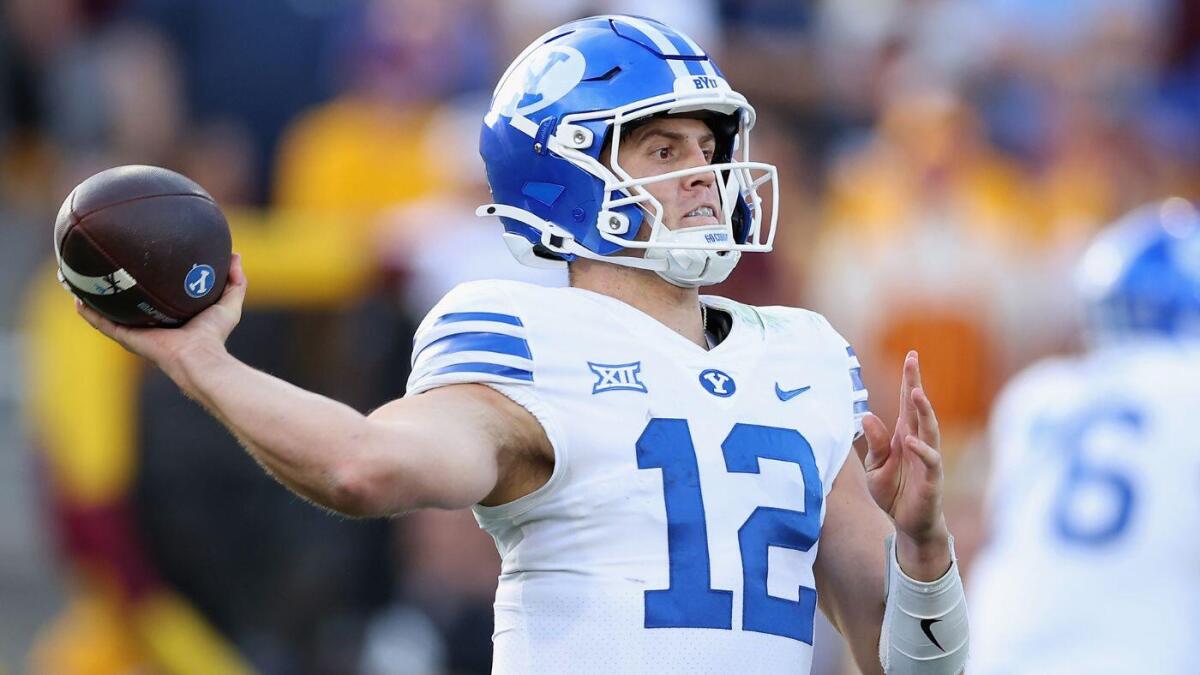The legal and reputational challenges facing Jake Retzlaff, the quarterback for Brigham Young University (BYU), have sparked widespread discussion and concern. The civil lawsuit filed in May 2025 accuses Retzlaff of sexual assault, battery, assault, and intentional infliction of emotional distress, stemming from an alleged incident in 2023. The plaintiff claims that Retzlaff forced sexual contact and strangulation upon an anonymous woman at his Provo residence. This case has significant implications for Retzlaff’s career, BYU’s football program, and the broader collegiate sports landscape.
The Civil Lawsuit: Allegations and Legal Process
The civil lawsuit, filed in Utah’s Third District Court, outlines serious allegations, including rape and physical assault. The incident is alleged to have occurred at Retzlaff’s home in 2023, with the plaintiff asserting that the encounter was non-consensual. Retzlaff’s legal team has vehemently denied these allegations, describing them as baseless. The defendant has responded to the lawsuit through his attorneys, indicating a readiness to contest the accusations in court.
The legal process will follow a standard civil litigation timeline, beginning with the defendant’s response, followed by discovery, motions, and potential settlement negotiations or a trial. Given the severity of the allegations and the high-profile nature of the case, the proceedings have garnered significant attention. The outcome of this lawsuit could have lasting implications for Retzlaff’s personal and professional life, as well as for BYU’s reputation.
Impact on BYU Football Program and Retzlaff’s Career
Retzlaff’s situation has placed BYU in a precarious position, as the university must navigate the complexities of its Honor Code, which governs student-athlete conduct. Reports suggest that Retzlaff has acknowledged an Honor Code violation related to the incident, further complicating the university’s response. Multiple sources indicate that Retzlaff is facing a lengthy suspension, potentially spanning multiple games, which could significantly impact the team’s performance and dynamics.
For BYU football, the retention or loss of Retzlaff is a critical issue. As a quarterback who threw nearly 3,000 yards and 20 touchdowns in the previous season, his role is pivotal. An absence or exit would affect the quarterback depth chart, overall team morale, and recruiting efforts. The uncertainty surrounding Retzlaff’s future has created a sense of instability within the program, raising questions about how the team will adapt in his potential absence.
Broader Implications: Reputation and Athletics Culture
This case highlights broader issues at the intersection of collegiate sports, legal accountability, and institutional responsibility. High-profile athletes often face intense scrutiny, and allegations of this nature prompt discussions about due process, victim rights, and the pressures faced by student-athletes. BYU’s handling of the situation will be closely watched as a benchmark for how universities balance supporting their athletes with upholding ethical standards and ensuring campus safety.
The lawsuit and potential suspension also stimulate dialogue on the cultural environment in college sports programs. How allegations of misconduct are managed and the transparency expected from leadership are critical considerations. The case underscores the need for institutions to implement robust policies and procedures to address such incidents fairly and transparently.
Legal and Public Relations Challenges Ahead
Both Retzlaff and BYU face significant legal and public relations challenges in the coming months. Retzlaff will need a strong legal defense to challenge the civil allegations and protect his athletic and personal future. Meanwhile, BYU must carefully navigate public relations and regulatory compliance, maintaining fairness while safeguarding its institutional values.
Public opinion is divided, with social media commentary ranging from outright condemnation to calls for due process. The visibility of the situation magnifies every step taken by all parties involved. The university’s response will be scrutinized not only by the public but also by regulatory bodies and other institutions. Effective communication and transparency will be key to managing the fallout from this case.
Conclusion: A Critical Crossroads
Jake Retzlaff’s civil lawsuit and the repercussions that followed represent a serious crossroads in his life and career, as well as a significant test for the BYU football program. What began as allegations has cascaded into suspension prospects, legal battles, and potential program exit. The unfolding events will have lasting impacts beyond the field, touching on issues of justice, accountability, and the responsibilities placed on public figures, especially in collegiate sports.
How Retzlaff and BYU respond in the coming months will define not only individual paths but also set precedents for handling similar cases in the future. The case serves as a reminder of the complexities involved in balancing legal proceedings, institutional policies, and public perception. The outcomes will shape the future of collegiate sports and the expectations placed on athletes and universities alike.

